2023 Fall Faculty Reading Groups
This semester the Center for the Advancement of Teaching is offering the following four faculty reading groups and one reading group for TAs. Each group will meet once a week for three weeks to discuss the books in sections. We hope you can join us! Please register here.
The New College Classroom
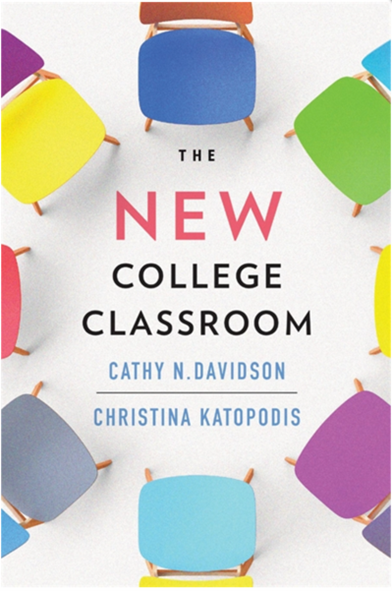 Thursdays: 9/28, 10/5, 10/12
Thursdays: 9/28, 10/5, 10/12
2:00–3:30 p.m. in 432 DIF
Print copy, delivered through interoffice mail
Davidson’s new book is an inspiring and practical guide that helps faculty bring recent research on learning to bear on their own teaching. Participants will generate plans for implementing multiple strategies in their own classrooms to create dynamic learning environments, exciting learning experiences for students, and more gratifying teaching experiences for themselves.
Click here to explore the book The New College Classroom.
Teaching and Learning STEM: A Practical Guide
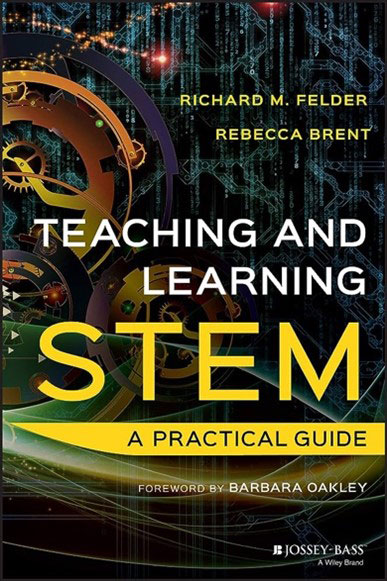 Thursdays: 10/19, 10/26, 11/2
Thursdays: 10/19, 10/26, 11/2
10:00–11:30 a.m. in Dirac Library Conference Room
Print copy, delivered through interoffice mail
Would you like to incorporate more active learning into your STEM course, but are unsure where to start? Richard Felder and Rebecca Brent provide practical, evidence-based strategies for designing and teaching STEM courses to promote student learning and retention. Drawing from decades of research and experience, the authors provide concrete suggestions of evidence-based methods you can implement right away, without major preparation time, brought to life by rich examples from college courses across STEM disciplines and levels.
Click here to explore the book Teaching and Learning STEM: A Practical Guide.
Difficult Conversations: How to Discuss What Matters Most
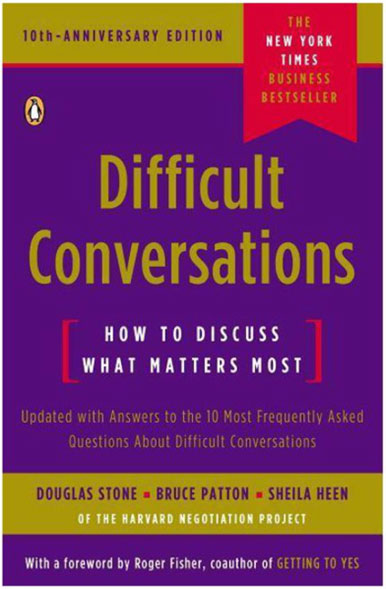 Fridays: 9/29, 10/6, 10/13
Fridays: 9/29, 10/6, 10/13
2:00–3:30 p.m. in DIF 432
Print copy, delivered through interoffice mail
Whether in or out of class, teaching sometimes involves having difficult conversations. We might have one in office hours with a student about a grade, or one in class about a sensitive topic, or even one with a colleague about changes to the curriculum. In this book, authors from the Harvard Negotiation Project share strategies for better understanding the underlying structures of all difficult conversations so that we can have rather than avoid them, stay more grounded during them, and make them as productive as possible.
Click here to explore the book Difficult Conversations: How to Discuss What Matters Most.
Teaching American Students: A Guide for International Faculty and Teaching Assistants in Colleges and Universities
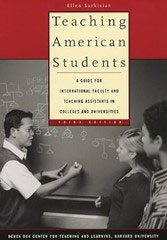 Tuesdays: 9/26, 10/3, 10/10
Tuesdays: 9/26, 10/3, 10/10
12:00–1:30 p.m. Meeting site: TBD
Electronic materials
Join our reading group for international faculty navigating American higher education. Explore the intricacies of teaching American college students with carefully selected book excerpts and articles. Gain insights into cultural nuances, teaching strategies, and fostering inclusion in the classroom. Share experiences and ideas with a supportive community of educators. Whether you’re a seasoned professor or new to American academia, this group will enhance your teaching skills and connect you with peers. We invite you to join us for an enriching educational journey that empowers you to make a lasting impact on your students.
Click here to explore the book Teaching American Students: A Guide for International Faculty and Teaching Assistants in Colleges and Universities.
Click here to watch the video accompanying the book.
Learner-Centered Teaching: Putting the Research on Learning into Practice
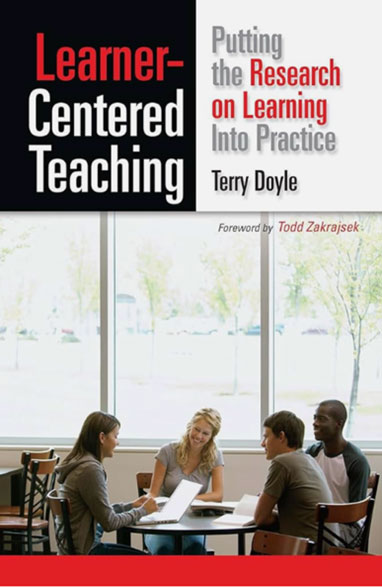 Thursdays: 10/5, 10/12, 10/19
Thursdays: 10/5, 10/12, 10/19
11:00–12:30 p.m. in DIF 432
E-book, available for free through FSU’s libraries
Note: This group is for TAs (graduate students) only.
Recent decades have brought a wealth of research on learning and cognition. These developments are gradually making their way into work on best practices for the college classroom. Doyle’s Learner-Centered Teaching is a practical, comprehensive guide to strategies for making effective use of the research. When we adjust our classroom focus from teaching to learning, we make our own work more gratifying, and we can enhance our students’ learning experience as well as their mastery of material. In this group, graduate teaching assistants will discuss Doyle’s text and specific strategies and activities for enriching our own classrooms.
2023 Spring Faculty Reading Groups
This semester the Center for the Advancement of Teaching is offering the following faculty reading groups. Each group will meet once a week for three weeks to discuss the books in sections. One group will be held remotely on Zoom. We hope you can join us! Please register here.
What the Best College Teachers Do
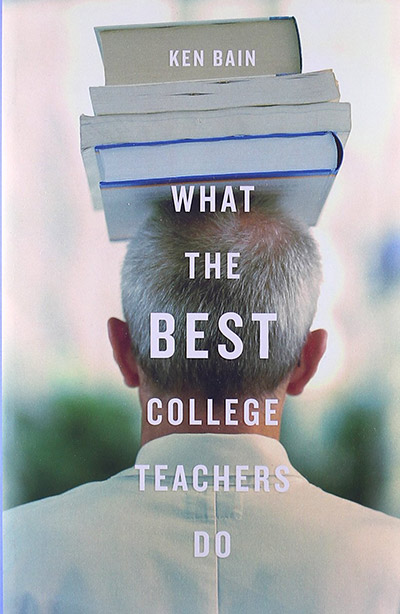 Tuesdays: 1/31, 2/7, 2/14
Tuesdays: 1/31, 2/7, 2/14
2:00–3:30 p.m. on Zoom
E-book, available through FSU’s libraries
Click here to explore the book What the Best College Teachers Do.
Cheating Lessons: Learning from Academic Dishonesty
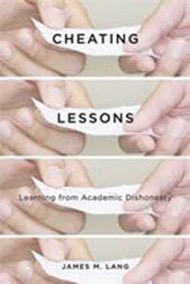 Fridays: 2/3, 2/10, 2/17
Fridays: 2/3, 2/10, 2/17
2:00–3:30 p.m. in 432 DIF
Print copy, delivered through interoffice mail
Click here to explore the book Cheating Lessons: Learning from Academic Dishonesty.
Note: This group will be co-facilitated by special guest Joshua Morgan, an academic affairs administrator and former mental health/career counselor who provides leadership, consultation, outreach, and training on academic integrity issues at FSU.
The New College Classroom
~ Closed – This group has reached capacity. ~
 Wednesdays: 2/22, 3/1, 3/8
Wednesdays: 2/22, 3/1, 3/8
2:30–4:00 p.m. in 432 DIF
Print copy, delivered through interoffice mail
Click here to explore the book The New College Classroom.
Unraveling Faculty Burnout: Pathways to Reckoning and Renewal
~ Closed – This group has reached capacity. ~
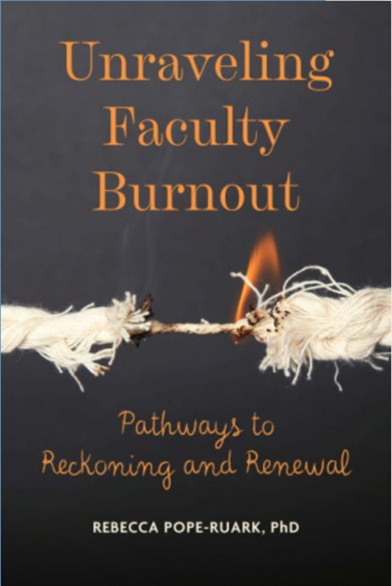 Thursdays: 2/23, 3/2, 3/9
Thursdays: 2/23, 3/2, 3/9
2:00–3:30 p.m. in 432 DIF
Print copy, delivered through interoffice mail
Click here to explore the book Unraveling Faculty Burnout: Pathways to Reckoning and Renewal.
2022 Fall Faculty Reading Groups
What Inclusive Instructors Do: Principles and Practices for Excellence in College Teaching
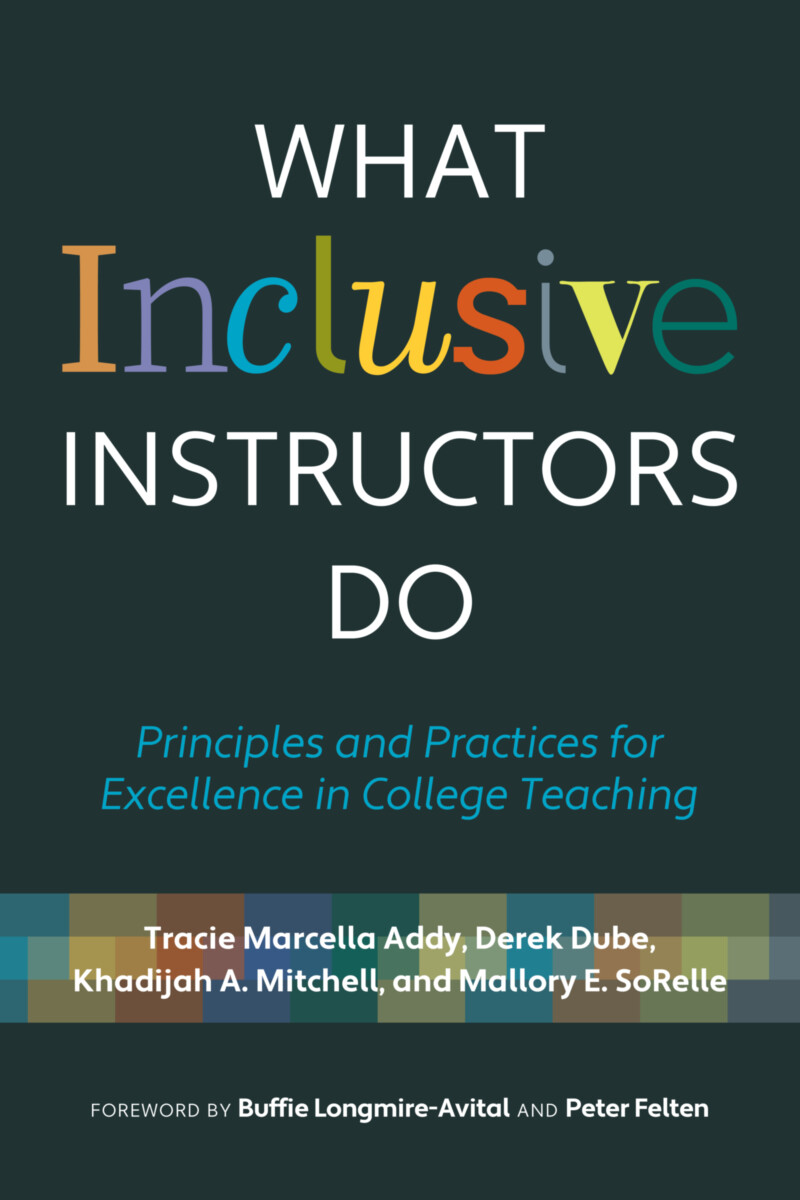 Thursdays: 9/22, 9/29, 10/6
Thursdays: 9/22, 9/29, 10/6
2:00–3:30 p.m. in 432 DIF
Print copy, delivered through interoffice mail
Click here to explore the book What Inclusive Instructors Do.
Distracted: Why Students Can’t Focus and What You Can Do About It
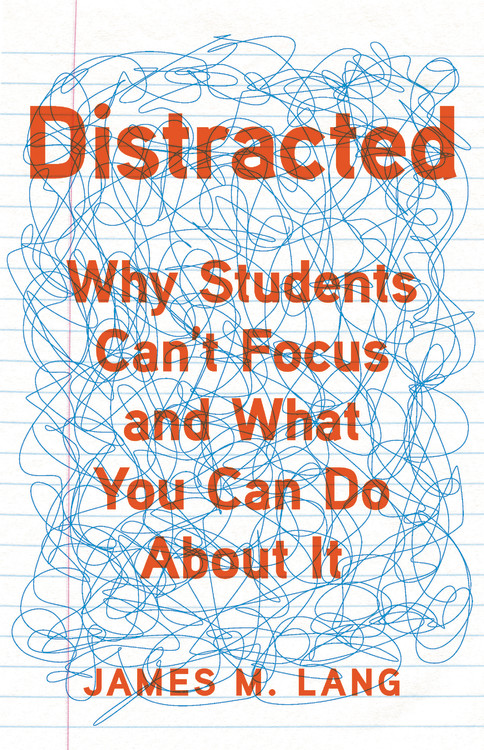 Fridays: 9/23, 9/30, 10/7
Fridays: 9/23, 9/30, 10/7
2:00–3:30 p.m. in 432 DIF
Print copy, delivered through interoffice mail
Click here to explore the book Distracted.
The Missing Course: Everything They Never Taught You about College Teaching
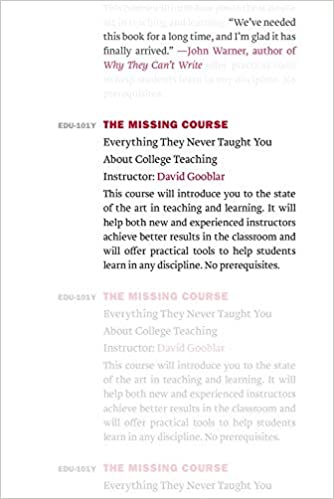 Thursdays: 10/13, 10/20, 10/27
Thursdays: 10/13, 10/20, 10/27
2:00–3:30 p.m. in 432 DIF
Print copy, delivered through interoffice mail
Click here to explore the book The Missing Course.
The Spark of Learning: Energizing the College Classroom with the Science of Emotion
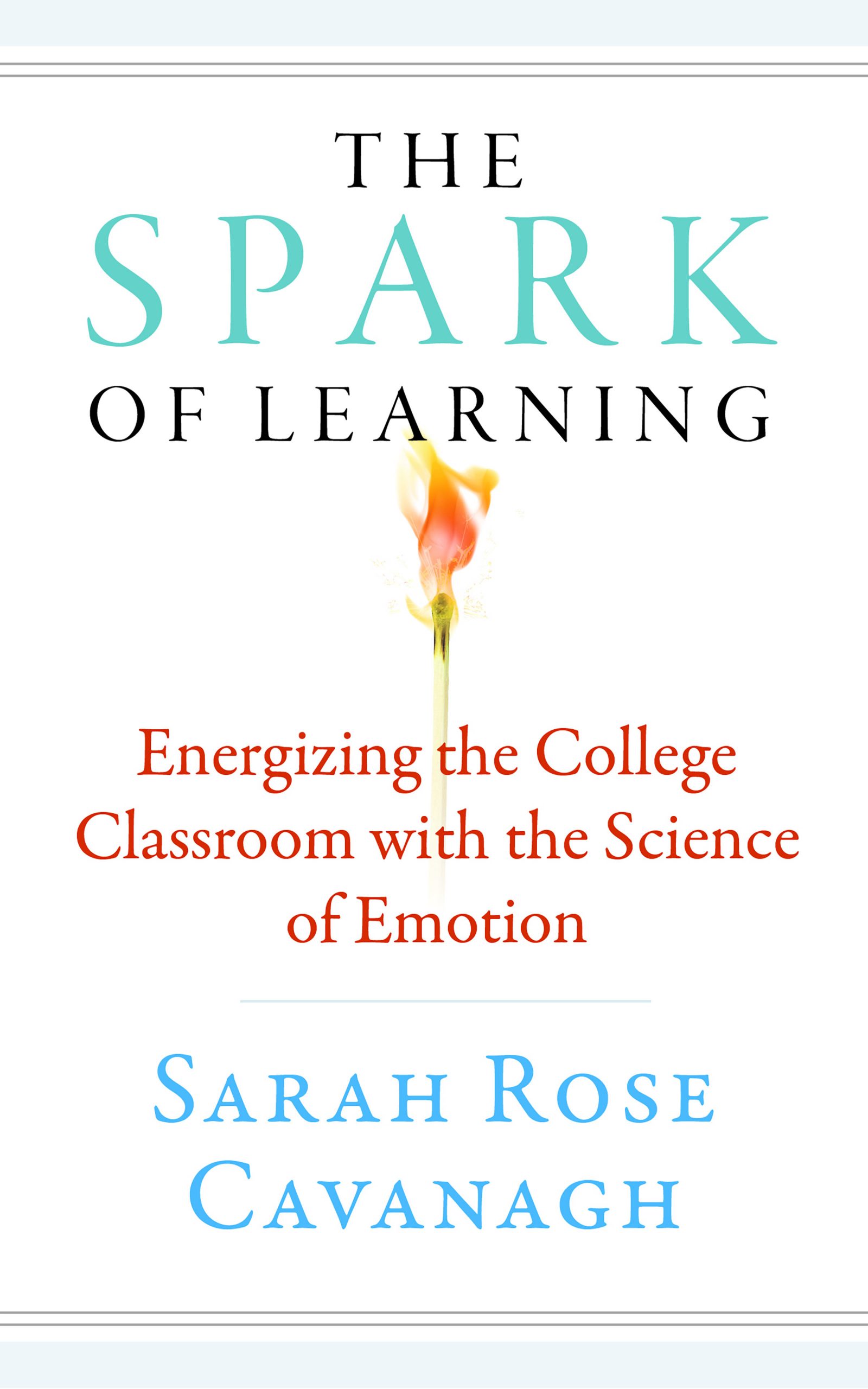 Fridays: 10/14, 10/21, 10/28
Fridays: 10/14, 10/21, 10/28
11:00–12:30 p.m. in 432 DIF
Print copy, delivered through interoffice mail
Click here to explore the book The Spark of Learning.
2022 Spring Faculty Reading Groups
Relationship-Rich Education: How Human Connections Drive Success in College
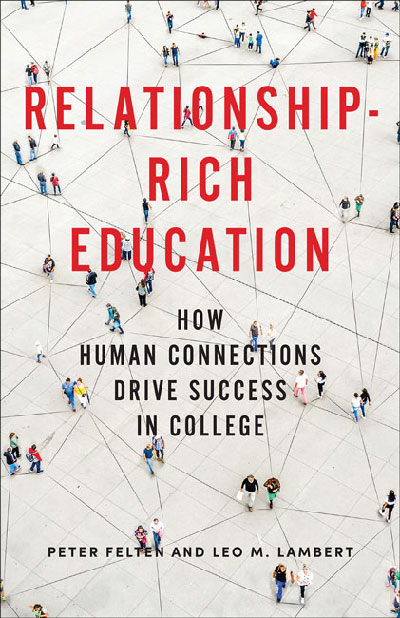 Wednesdays: 1/26, 2/2, 2/9
Wednesdays: 1/26, 2/2, 2/9
2:00–3:30 p.m. on Zoom
Print copy, delivered through interoffice mail
Click here to explore the book Relationship-Rich Education: How Human Connections Drive Success in College.
The Influential Mind: What the Brain Reveals About Our Power to Change Others
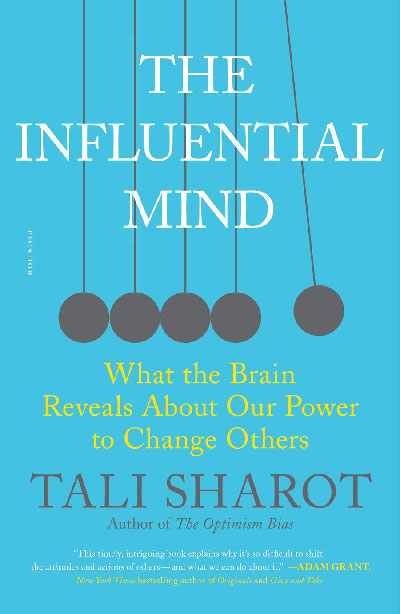 Thursdays: 1/27, 2/3, 2/10
Thursdays: 1/27, 2/3, 2/10
2:00–3:30 p.m. on Zoom
Print copy, delivered through interoffice mail
Click here to explore the bookThe Influential Mind: What the Brain Reveals About Our Power to Change Others.
Grading for Equity: What It Is, Why It Matters, and How It Can Transform Schools and Classrooms
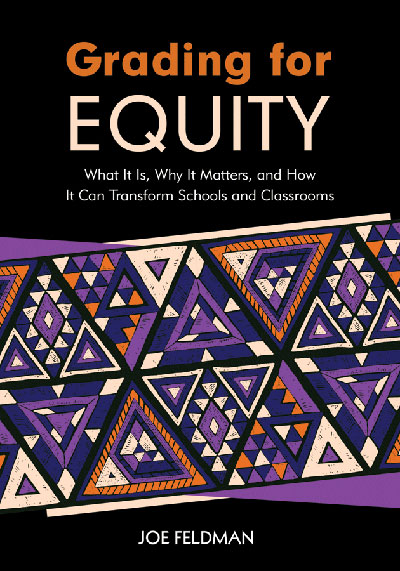 Tuesdays: 2/15, 2/22, 3/1
Tuesdays: 2/15, 2/22, 3/1
2:00–3:30 p.m., format TBD
Print copy, delivered through interoffice mail
Click here to explore the bookGrading for Equity: What It Is, Why It Matters, and How It Can Transform Schools and Classrooms.
Distracted: Why Students Can’t Focus and What You Can Do About It
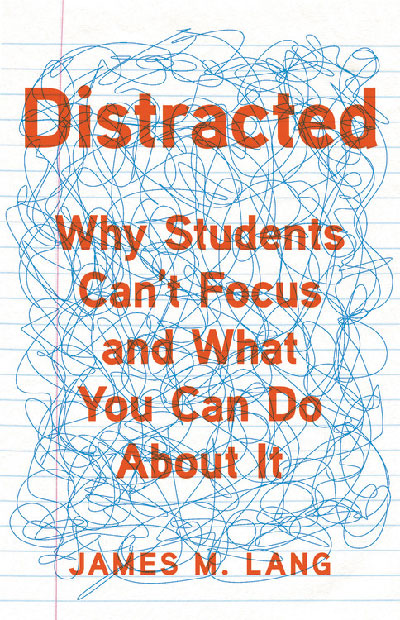 Thursdays: 2/17, 2/24, 3/3
Thursdays: 2/17, 2/24, 3/3
2:00–3:30 p.m., format TBD
Print copy, delivered through interoffice mail
Click here to explore the bookDistracted: Why Students Can’t Focus and What You Can Do About It.
Black, Brown, Bruised: How Racialized STEM Education Stifles Innovation
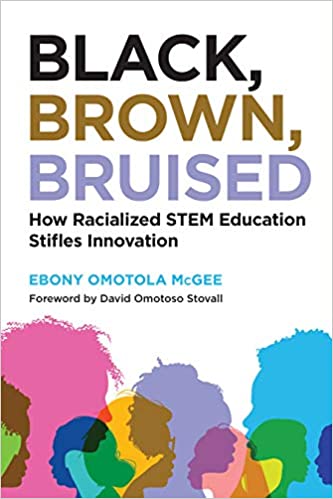 Thursdays: 3/31, 4/7, 4/14
Thursdays: 3/31, 4/7, 4/14
12:00–1:30 p.m. on Zoom
Print copy, delivered through interoffice mail
Click here to explore the bookBlack, Brown, Bruised: How Racialized STEM Education Stifles Innovation.
2021 Fall Reading Groups
Bandwidth Recovery: Helping Students Reclaim Cognitive Resources Lost to Poverty, Racism, and Social Marginalization
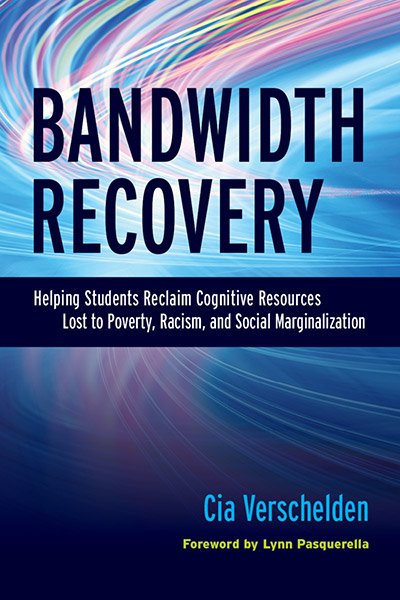 Wednesdays: 9/22, 9/29, 10/6; 2:00–3:30 p.m. on Zoom | print book
Wednesdays: 9/22, 9/29, 10/6; 2:00–3:30 p.m. on Zoom | print book
Cia Verschelden explains that more than half of our students may be operating with reduced cognitive “bandwidth”: the cognitive resources they need for higher-order thinking and deep learning are tapped because they’re coping with more immediate threats like food insecurity, social marginalization, or disruptive events. The book offers strategies for creating inclusive classroom environments where all students have the opportunity to learn. (If you’re concerned about students in need on our campus, you can also send donations to the food pantry here.)
What the Best College Teachers Do
 Fridays: 9/24, 10/1, 10/8; 10:30 a.m.–12:00 p.m. on Zoom | ebook
Fridays: 9/24, 10/1, 10/8; 10:30 a.m.–12:00 p.m. on Zoom | ebook
Ken Bain wanted to know how some faculty make a sustained, substantial, and positive influence on how their students think, act, and feel. How do some consistently provoke deep learning, while others merely have good intentions? Bain conducted a fifteen-year study of a hundred extraordinarily effective teachers to see how they help their students learn. The book traces how these exceptional faculty approach their subjects, their students, and the process of learning.
Small Teaching: Everyday Lessons from the Science of Learning
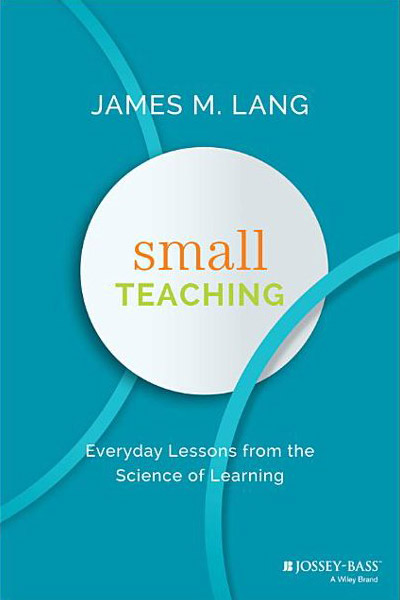 Thursdays: 10/14, 10/21, 10/28; 2:30–4:00 p.m. on Zoom | ebook
Thursdays: 10/14, 10/21, 10/28; 2:30–4:00 p.m. on Zoom | ebook
How do I get my students’ attention? How do I help them to go deeper, to make connections, and to feel empowered by their own learning? James Lang’s book explores the science of learning and shares with us small changes we can make that will have a powerful influence on our students’ learning. Join us as we discuss a variety of practical tools and techniques that can help us answer these and other teaching questions.
What Universities Can Be: A New Model for Preparing Students for Active Concerned Citizenship and Ethical Leadership
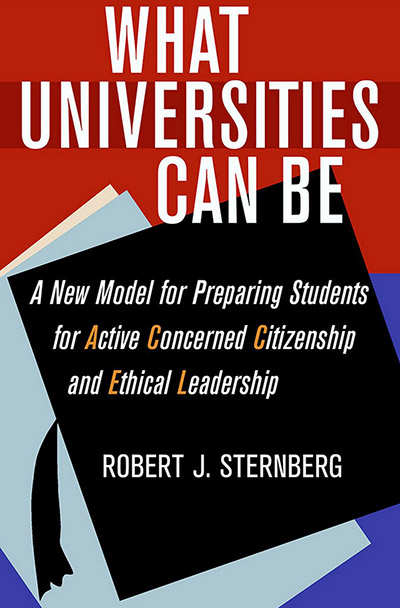 Wednesdays: 10/20, 10/27, 11/3; 2:00–3:30 p.m. on Zoom | print book
Wednesdays: 10/20, 10/27, 11/3; 2:00–3:30 p.m. on Zoom | print book
Robert Sternberg thinks that universities can do a better job teaching things like wisdom, compassion, creativity, and practical thinking. If we’re preparing students to be leaders for the future, they’ll need all of these skills, and opportunities to practice making ethical decisions. This group will discuss strategies for realizing Sternberg’s ideas in our own classrooms.
2021 Spring Reading/Working Groups
Creating the Path to Success in the Classroom: Teaching to Close the Graduation Gap for Minority, First-Generation, and Academically Unprepared Students
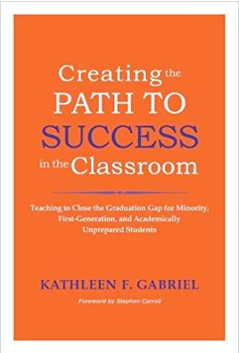 Wednesdays: 1/20, 1/27, 2/3; 2:00 – 3:30 p.m. on Zoom
Wednesdays: 1/20, 1/27, 2/3; 2:00 – 3:30 p.m. on Zoom
Over the past few decades, extensive research has shown that we can significantly reduce opportunity gaps and enhance student learning by adjusting our teaching practices and the ways we structure our courses. But where do we start? Kathleen Gabriel’s book provides practical strategies for building our courses to ensure that more students learn more and more deeply. Gabriel offers concrete steps we can take to enhance student motivation, structure class time effectively, prompt critical thinking, design effective assignments, and create classroom climates that promote learning.
How Learning Works
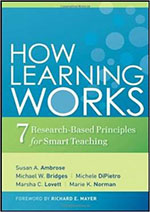 Thursdays: 1/21, 1/28, 2/4; 12:00 – 1:30 p.m. on Zoom
Thursdays: 1/21, 1/28, 2/4; 12:00 – 1:30 p.m. on Zoom
This book distills the research on cognition, translating decades of scientific literature into practical advice and introducing seven general principles of how people learn. The authors draw on cognitive, developmental, and social psychology, as well as educational research, anthropology, etc. The discussion spans issues from memory to motivation, integrating theory with real classroom examples. Participants will develop strategies for strengthening their own teaching through the application of these principles, with a focus on applying the strategies in the book to remote teaching and learning.
Why They Can’t Write
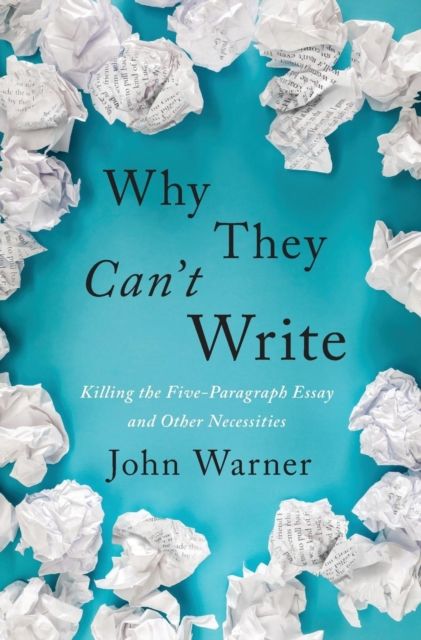 Fridays: 1/22, 1/29, 2/5; 1:00 – 2:30 p.m. on Zoom
Fridays: 1/22, 1/29, 2/5; 1:00 – 2:30 p.m. on Zoom
Inspired by faculty complaints about students’ writing, especially that undergraduates have so much trouble sharing their own thinking—whether critical or creative—in clear and compelling ways, Warner argues that students’ trouble with college-level writing isn’t caused by a lack of rigor, or smartphones, or some generational character defect, but instead by standardized testing and other issues in the U.S. education system. He argues that students have been conditioned to perform “writing-related simulations,” in which they simply follow the rules to get the grade. Why They Can’t Write includes both a diagnosis and a proposal for improving the ways we teach writing throughout students’ lives, urging us to explore how people really develop the skills, attitudes, knowledge, and habits of mind of strong writers.
How to Be an Antiracist
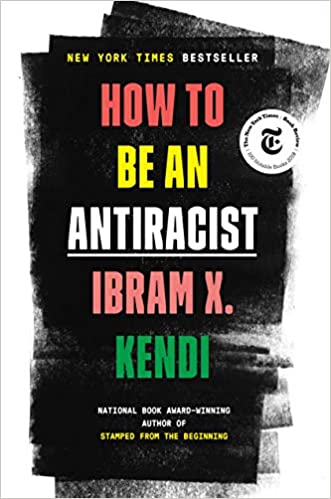 Wednesdays: 2/10, 2/17, 2/24; 2:00 – 3:30 p.m. on Zoom
Wednesdays: 2/10, 2/17, 2/24; 2:00 – 3:30 p.m. on Zoom
Ibram X. Kendi, winner of the National Book Award, traces the structural functions of racism, helping readers see how policies and institutions perpetuate injustice. Participants will work on making their own lives and teaching practices more intentionally antiracist and will consider how to negotiate tough classroom conversations.
Black, Brown, Bruised: How Racialized STEM Education Stifles Innovation
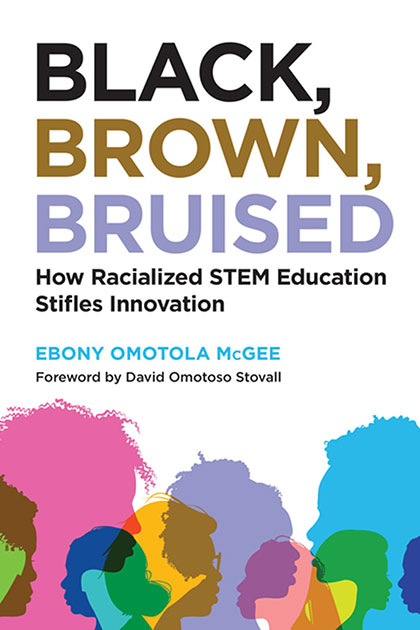 Thursdays: 2/11, 2/18, 2/25; 12:00 – 1:30 p.m. on Zoom
Thursdays: 2/11, 2/18, 2/25; 12:00 – 1:30 p.m. on Zoom
By examining the experiences of underrepresented, racially minoritized students and faculty who have succeeded in STEM, McGee invites readers to analyze and address structural, institutional, and individual decisions that perpetuate disparities in STEM education and careers. Since COVID-19 and remote instruction may have exacerbated already widening outcome inequities for many students of color in STEM, this faculty reading group will focus on improving STEM teaching and learning through anti-racist instruction, including decolonizing syllabi, avoiding deficit models, and addressing stereotype threat and implicit biases. Decolonizing STEM resources will be available, and participating faculty and TAs are invited to share their favorite resources as well.
Play: How it Shapes the Brain, Opens the Imagination, and Invigorates the Soul
 Thursdays: 2/11, 2/18, 2/25; 1:00 – 2:30 p.m. on Zoom
Thursdays: 2/11, 2/18, 2/25; 1:00 – 2:30 p.m. on Zoom
Do you have fun while teaching? Do your students have fun while learning? What role does pleasure have in intellectual growth? Is there room for play in a 21st Century college education? As we discuss Brown’s book, which explains why play is essential to our social skills, adaptability, intelligence, creativity, ability to problem solve and more, we will explore answers to these questions and others, and think of creative ways to apply what we learn from this fascinating blend of cutting-edge neuroscience, biology, psychology, social science, and human stories to our own lives and teaching.
2020 Fall Reading/Working Groups
Small Teaching Online: Applying Learning Science in Online Classes
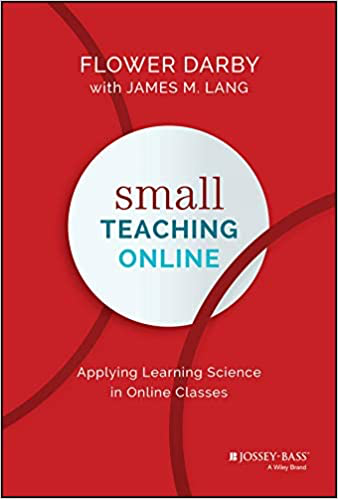 Fridays: 9/18, 9/25, 10/2; 10:30 a.m. – 12:00 p.m. on Zoom
Fridays: 9/18, 9/25, 10/2; 10:30 a.m. – 12:00 p.m. on Zoom
How do I make my online class interesting and interactive? How do I motivate students to keep up with the course, to engage intellectually, and to learn deeply while working remotely? In this update to James Lang’s popular book, Flower Darby applies Lang’s concept of “small teaching” to the online classroom. Faculty from across disciplines and FSU campuses are invited to join this reading and working group, in which we will explore the science of learning and discuss small but strategic changes we can make that will have a powerful influence on our students’ learning.
Teaching to Transgress
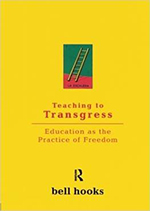 Wednesdays: 9/23, 9/30, 10/7; 2:00 – 3:30 p.m. on Zoom
Wednesdays: 9/23, 9/30, 10/7; 2:00 – 3:30 p.m. on Zoom
Hooks challenges the “banking” model of learning, where education is envisioned as an accumulation of received wisdom. She argues that instead, education must be a process of empowerment and liberation, in which students learn to question, to resist, and to find their own place in a larger conversation. She asks us as educators to examine our own assumptions, biases, and privileges, so that we can better reach our students, and offer them a truly transformational education. Participants will develop strategies for putting these ideas into practice.
How Learning Works
 Thursdays: 10/8, 10/15, 10/22; 2:30 – 4:00 p.m. on Zoom
Thursdays: 10/8, 10/15, 10/22; 2:30 – 4:00 p.m. on Zoom
This book distills the research on cognition, translating decades of scientific literature into practical advice and introducing seven general principles of how people learn. The authors draw on cognitive, developmental, and social psychology, as well as educational research, anthropology, etc. The discussion spans issues from memory to motivation, integrating theory with real classroom examples. Participants will develop strategies for strengthening their own teaching through the application of these principles, with a focus on applying the strategies in the book to remote teaching and learning.
What the Best College Teachers Do
 Thursdays: 11/5, 11/12, 11/19; Time: 12:00-1:30 p.m. on Zoom
Thursdays: 11/5, 11/12, 11/19; Time: 12:00-1:30 p.m. on Zoom
Ken Bain wanted to know how some faculty make a sustained, substantial, and positive influence on how their students think, act, and feel. How do some consistently provoke deep learning, while the rest of us merely have good intentions? Bain conducted a fifteen-year study of a hundred extraordinarily effective teachers, to see how they help their students learn. The book traces how these exceptional teachers approach their subjects, their students, and the process of learning. Participants will collaborate on ways to extend Bain’s findings to teaching in different modalities, including online and remote courses.
2020 Summer Reading/Working Groups
Small Teaching Online: Applying Learning Science in Online Classes
 Fridays, 6/5, 6/12, and 6/19 from 1-3 p.m.
Fridays, 6/5, 6/12, and 6/19 from 1-3 p.m.
How do I make my online class interesting and interactive? How do I motivate students to keep up with the course, to engage intellectually, and to learn deeply while working remotely? In this update to James Lang’s popular book, Flower Darby applies Lang’s concept of “small teaching” to the online classroom. Faculty from across disciplines and FSU campuses are invited to join this reading and working group, in which we will explore the science of learning and discuss small but strategic changes we can make that will have a powerful influence on our students’ learning.
Minds Online: Teaching Effectively with Technology
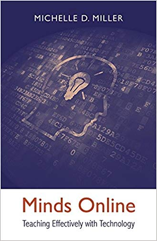 Wednesdays, 7/1, 7/8, and 7/15 from 2-4 p.m.
Wednesdays, 7/1, 7/8, and 7/15 from 2-4 p.m.
Michelle Miller’s Minds Online explores how humans learn best (and where they struggle) in online environments. Rather than a list of technology tools, the book offers guidance for designing effective learning experiences, suited to the ways in which the human brain assimilates new information. Drawing on the latest findings from neuroscience and cognitive psychology, Miller explores how attention, memory, and higher-order processes such as critical thinking and analytical reasoning can be enhanced through technology-aided approaches. Participants will develop plans for learning-centered fall courses that take advantage of learners’ existing knowledge, help students develop their thinking in productive ways, and motivate students to do their best work.
How To Be An Antiracist
 Thursdays, 6/11, 6/18, and 6/25 from 12:00-2:00
Thursdays, 6/11, 6/18, and 6/25 from 12:00-2:00
Ibram X. Kendi, winner of the National Book Award, traces the structural functions of racism, helping readers see how policies and institutions perpetuate injustice. Participants will work on making their own lives and teaching practices more intentionally antiracist and will consider how to negotiate tough classroom conversations. To register, sign up here.
2020 Spring Reading/Working Groups
Becoming A Critically Reflective Teacher
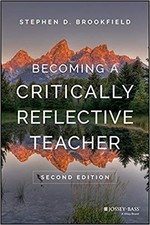 Wednesdays, 1/15, 1/22, 1/29; 2:00-4:00 in 432 Diffenbaugh
Wednesdays, 1/15, 1/22, 1/29; 2:00-4:00 in 432 Diffenbaugh
Brookfield insists that we are never finished becoming more enlightened teachers, and that we can enhance our practice and our satisfaction with our work by examining ourselves through different lenses. In order to reach our students more effectively, we must examine the assumptions that underpin our interactions and communications. This influential book takes the reader through a process of reflection and evaluation that will lead to powerfully enhanced teaching. The group will begin the task of applying these perspectives to our own teaching, and tracking the results in our classrooms.
What the Best College Teachers Do
 Tuesdays, 1/21, 1/28, and 2/3; 2:00-4:00 in Strozier 027 B
Tuesdays, 1/21, 1/28, and 2/3; 2:00-4:00 in Strozier 027 B
Ken Bain wanted to know how some faculty manage to “make a sustained, substantial, and positive influence on how their students think, act, and feel.” How do some faculty consistently provoke deep learning, while the rest of us merely have good intentions? Bain conducted a fifteen-year study of a hundred extraordinarily effective teachers, to see how they help their students learn. The book traces how these exceptional teachers approach their subjects, their students, and the process of learning.
What Universities Can Be: A New Model for Preparing Students for Active Concerned Citizenship and Ethical Leadership
 Wednesdays 2/12, 2/19, 2/26; 2:00-4:00 in 432 Diffenbaugh
Wednesdays 2/12, 2/19, 2/26; 2:00-4:00 in 432 Diffenbaugh
Robert Sternberg thinks that universities can do a better job teaching things like wisdom, compassion, creativity, and practical thinking. If we’re preparing students to be leaders for the future, they’ll need all of these skills, and opportunities to practice making ethical decisions. This group will discuss strategies for realizing Sternberg’s ideas in our own classrooms.
Learner Centered Teaching
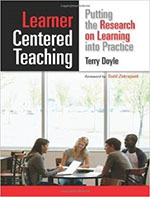 Tuesdays, 2/18, 2/25, and 3/3; 2:00-4:00 in Strozier 027 B
Tuesdays, 2/18, 2/25, and 3/3; 2:00-4:00 in Strozier 027 B
Recent decades have brought a wealth of research on learning and cognition; these developments are gradually making their way into work on best practices for the college classroom. Doyle’s Learner-Centered Teaching: Putting the Research on Learning into Practice is a practical guide to strategies for making effective use of the research. When we adjust our classroom focus from teaching to learning, we make our own work more gratifying, and we can enhance our students’ learning experience as well as their mastery of material. The group will generate specific strategies and activities for enriching our own classrooms.
2019 Fall Reading/Working Groups
How Learning Works
 Tuesdays, 12:00-2:00; 9/10, 9/17, 9/24
Tuesdays, 12:00-2:00; 9/10, 9/17, 9/24
This book distills the research on cognition, translating decades of scientific literature into practical advice for university faculty and introducing seven general principles of how people learn. The authors draw on research from cognitive, developmental, and social psychology, as well as educational research, anthropology, etc. The discussion spans issues from memory to motivation, integrating theory with real-classroom examples in practice. Participants will develop strategies for strengthening their own teaching through the application of these principles of cognitive psychology.
Please feel welcome to bring your lunch to this brown-bag lunch-hour session.
The Spark of Learning: Energizing the College Classroom with the Science of Emotion
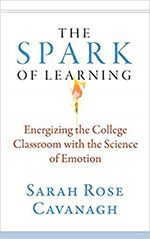 Thursdays, 2:00–4:00; 9/12, 9/19, 9/26
Thursdays, 2:00–4:00; 9/12, 9/19, 9/26
Most of our preparation for teaching (both our training and our planning) focuses on the content, and the thinking students need to do, but Sarah Rose Cavanagh reminds us that learning is a highly emotional process. Anxiety and fear hamper learning, while powerful positive emotions can enhance it. Cavanagh offers concrete strategies for harnessing the power of emotion to galvanize learning.
Race Talk and the Conspiracy of Silence: Understanding and Facilitating Difficult Dialogues on Race
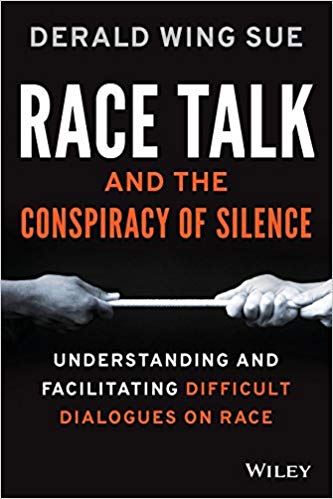 Tuesdays, 2:00-4:00; 9/17, 9/24, 10/1
Tuesdays, 2:00-4:00; 9/17, 9/24, 10/1
Faculty often feel unprepared for the difficult dialogues or inter-group conflicts that may arise in class, but navigating these discussions is important for students’ learning and for maintaining a productive classroom environment. Derald Wing Sue’s book unites quantitative and qualitative research, providing numerous examples and analyses of complex and challenging conversations. This reading group will use his analysis and advice to interpret dynamics in our own classrooms and prepare to handle them more effectively. Facilitated by Jonathan Jackson, from FSU’s College of Business.
Teaching To Transgress
 Tuesdays, 2:00-4:00; 10/8, 10/15, 10/22
Tuesdays, 2:00-4:00; 10/8, 10/15, 10/22
Hooks challenges the “banking” model of learning, where education is envisioned as an accumulation of received wisdom. She argues that instead, education must be a process of empowerment and liberation, in which students learn to question, to resist, and to find their own place in a larger conversation. She asks us as educators to examine our own assumptions, biases, and privileges, so that we can better reach our students, and offer them a truly transformational education. Participants will develop strategies for putting these ideas into practice.
2019 Summer Reading/Working Groups
Why Don’t Students Like School?: A Cognitive Scientist Answers Questions About How the Mind Works and What It Means for the Classroom
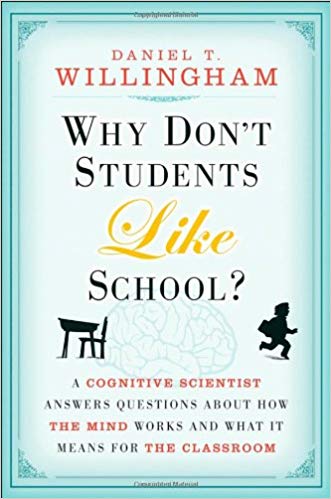 Thursdays, 2:00–4:00; 5/23, 5/30, 6/6
Thursdays, 2:00–4:00; 5/23, 5/30, 6/6
In this entertaining and informative book, Daniel Willingham shares highlights from his research into the brain basis of learning and memory, and describes the application of cognitive psychology to education. His book can help us enhance our teaching by explaining how we (as experts) and our students (as novices) think and learn. Willingham discusses the importance of story, emotion, memory, context, and routine in building knowledge and creating lasting learning. Participants will generate concrete ideas for their own classrooms.
Small Teaching: Everyday Lessons from the Science of Learning
 Wednesdays, 2:00-4:00; 5/29, 6/5, 6/12
Wednesdays, 2:00-4:00; 5/29, 6/5, 6/12
How do I get my students’ attention? How do I help my students to go deeper, expand their ability to analyze and feel empowered by their own learning? James Lang’s newest book explores the science of learning and shares with us small changes we can make that will have a powerful influence on our students’ learning. Join us as we learn the tools and techniques to help us answer these and other teaching and learning questions.
Race Talk and the Conspiracy of Silence: Understanding and Facilitating Difficult Dialogues on Race
 Tuesdays, 2:00–4:00; 7/2, 7/9, 7/16
Tuesdays, 2:00–4:00; 7/2, 7/9, 7/16
Faculty often feel unprepared for the difficult dialogues or inter-group conflicts that may arise in class, but navigating these discussions is important for students’ learning and for maintaining a productive classroom environment. Derald Wing Sue’s book unites quantitative and qualitative research, providing numerous examples and analyses of complex and challenging conversations. This reading group will use his analysis and advice to interpret dynamics in our own classrooms and prepare to handle them more effectively.
2019 Spring Reading/Working Groups
How Learning Works
 Mondays: 2/11, 2/18, 2/25; 2:00-4:00 p.m.
Mondays: 2/11, 2/18, 2/25; 2:00-4:00 p.m.
This book distills the research on cognition, translating decades of scientific literature into practical advice for university faculty and introducing seven general principles of how people learn. The authors draw on research from cognitive, developmental, and social psychology, as well as educational research, anthropology, etc. The discussion spans issues from memory to motivation, integrating theory with real-classroom examples in practice. Participants will develop strategies for strengthening their own teaching through the application of these principles of cognitive psychology.
Discussion in the College Classroom
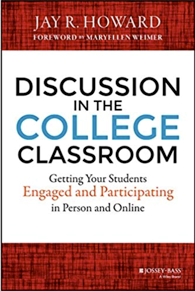 Tuesdays: 1/22, 1/29, 2/5; 10:00 a.m. – 12:00 p.m.
Tuesdays: 1/22, 1/29, 2/5; 10:00 a.m. – 12:00 p.m.
Whether you have been teaching through class discussion for years, or you’d like to begin incorporating discussion into a course for the first time, this wonderful book is for faculty of all disciplines and experience levels. In Discussion in the College Classroom, Jay R. Howard, a professor of sociology, summarizes findings from an extensive body of research on discussion as a pedagogical technique, and shares practical approaches to keeping classroom discussions fresh, productive, and serving the learning goals, both in person and online. Participants will explore the findings and strategies in the book, and share their own plans for structuring thought-provoking class discussions.
How Humans Learn: The Science and Stories behind Effective College Teaching
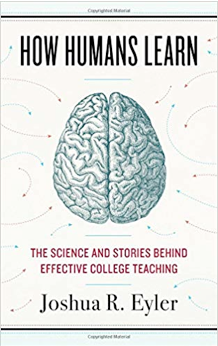 Wednesdays: 2/20, 2/27, 3/6; 2:00-4:00 p.m.
Wednesdays: 2/20, 2/27, 3/6; 2:00-4:00 p.m.
Teaching is a challenging profession. One way to make it easier is to know more about the ways students learn. How Humans Learn surveys research in fields as diverse as developmental psychology, anthropology, and cognitive neuroscience for insight into the science behind learning. Joshua R. Eyler guides the reader through a story that ranges from investigations of the evolutionary record to studies of infants discovering the world for the first time, and from a look into how our brains respond to fear to a reckoning with the importance of gestures and language. In this reading group, we will explore five broad themes—curiosity, sociality, emotion, authenticity, and failure—and discuss practical takeaways for busy teachers.
Creating the Path to Success in the Classroom: Teaching to Close the Graduation Gap for Minority, First-Generation, and Academically Unprepared Students
 Dates TBD by Doodle Poll
Dates TBD by Doodle Poll
Over the past few decades, extensive research has shown that we can significantly reduce achievement gaps and enhance student learning by adjusting our teaching practices and the ways we structure our courses. But where do we start? Kathleen Gabriel’s book provides practical strategies for building our courses to ensure that more students learn more and more deeply. Gabriel offers concrete steps we can take to enhance student motivation, structure class time effectively, prompt critical thinking, design effective assignments, and create classroom climates that promote learning.
Improving How Universities Teach Science: Lessons from the Science Education Initiative
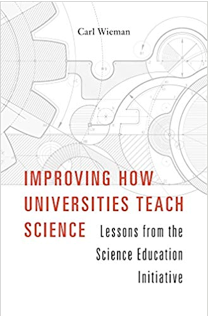 Registration closed
Registration closed
Nobel-winning physicist Carl Wieman is also an outspoken proponent of education research, and has spent decades studying the effects of scholarly approaches to teaching. His most recent book presents the results of an extensive science education initiative, and advocates substantial changes in the structure and strategies of college classes, to achieve far greater student learning. He also provides concrete strategies for improving teaching without imposing undue demands on faculty time.
The New Education: How to Revolutionize the University to Prepare Students for a World In Flux
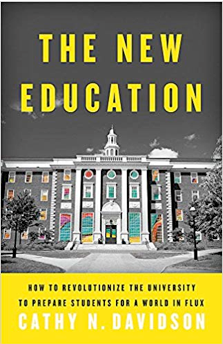 Dates TBD by Doodle Poll
Dates TBD by Doodle Poll
Davidson argues that our current educational system was designed for an industrializing economy, and no longer offers students the type of preparation they require for a globalized and digital future. If universities are to remain relevant in our rapidly changing world, we’ll have to become more nimble. Davidson studies innovative faculty and institutions that have found ways to help students hone their creative, collaborative, and adaptive skills.
This reading/working group is designed especially for women who are interested in leadership positions in higher education, and is co-sponsored by the ACE Women’s Network of Florida, FSU Chapter.
2018 Fall Reading/Working Groups
S.Y. McGuire, Teach Students How to Learn
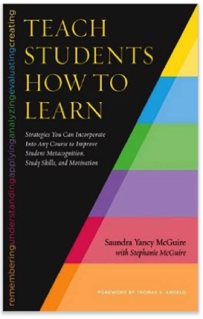 Registration closed—this group is already full. We will offer it again in the spring.
Registration closed—this group is already full. We will offer it again in the spring.
In this concise and practical guide, Saundra Yancy McGuire, retired Assistant Vice Chancellor and Professor of Chemistry at LSU, highlights essential research on learning, motivation, and metacognition, and provides concrete strategies faculty can use to help students become more effective and self-regulated learners in any course. Participants will discuss the concepts, explore the strategies, and generate concrete ideas for their own classrooms.
K. Bain, What the Best College Teachers Do
 Wednesdays 10:00-12:00; 9/19, 9/26, 10/3
Wednesdays 10:00-12:00; 9/19, 9/26, 10/3
Ken Bain wanted to know how some faculty manage to “make a sustained, substantial, and positive influence on how their students think, act, and feel.” How do some faculty consistently provoke deep learning, while the rest of us merely have good intentions? Bain conducted a fifteen-year study of a hundred extraordinarily effective teachers, to see how they help their students learn. The book traces how these exceptional teachers approach their subjects, their students, and the process of learning.
M.R. Banaji & A.G. Greenwald, Blind Spot
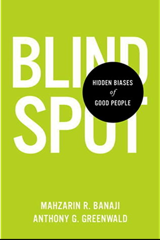 Tuesdays 2:00-4:00; 10/2, 10/9, 10/16
Tuesdays 2:00-4:00; 10/2, 10/9, 10/16
Banaji and Greenwald’s book Blind Spot: Hidden Biases of Good People shares research from the Implicit Association Test, a method they co-developed to gauge “implicit bias.” Blind Spot explores the ways in which our unconscious, acculturated assumptions about social groups shape our reactions, behavior, and judgments about people’s character, abilities, and potential. NPR’s segment “What Does Modern Prejudice Look Like” provides more details.
J.C. Bean, Engaging Ideas
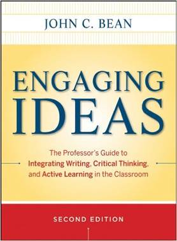 Mondays 2:00-4:00; 10/8, 10/15, 10/22
Mondays 2:00-4:00; 10/8, 10/15, 10/22
The second edition of John Bean’s best-selling classic text Engaging Ideas will be the foundation of this reading group, in which we will discuss using writing as a mode of teaching and learning in any course. From formal writing projects to informal classroom exercises, we will explore the ways writing can be used to help students improve as critical thinkers and effective communicators. Then, we will make plans to apply strategies Bean describes to enhancing writing instruction in our own courses.
M.D. Miller, Minds Online
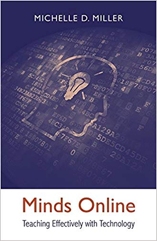 Wednesdays 2:00-4:00; 10/17, 10/24, 10/31
Wednesdays 2:00-4:00; 10/17, 10/24, 10/31
This group will discuss “Minds online: teaching effectively with technology” by Michelle Miller. Minds Online is a concise, nontechnical guide for instructors who seek to advance learning through a sound scientific understanding of how the human brain assimilates knowledge. Drawing on the latest findings from neuroscience and cognitive psychology, Miller explores how attention, memory, and higher thought processes such as critical thinking and analytical reasoning can be enhanced through technology-aided approaches. Participants will discuss how to use multimedia effectively, how to take advantage of learners’ existing knowledge, and how to motivate students to do their best work.
Z. Hammond, Culturally Responsive Teaching & the Brain
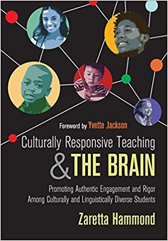 Wednesdays 10:00-12:00; 10/24, 10/31, 11/7
Wednesdays 10:00-12:00; 10/24, 10/31, 11/7
Hammond’s book illuminates the connections between culture, the brain, and learning. We usually think of neuroscience and the study of culture as wholly separate spheres, but Hammond reveals the biological basis of culturally-responsive teaching. The brain makes far more neural connections in response to the proper stimulation, so we can exponentially enhance our teaching by finding ways to make our content and approaches relevant to students’ lives, values, and ways of knowing. The book offers strategies for building “learning partnerships,” and for understanding and connecting to students to enhance their learning. Participants will develop plans for implementing these strategies in their own classes.
2018 Summer Reading/Working Groups
Specifications Grading
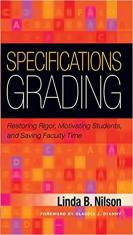 Tuesdays, 6/12 and 6/19; 10:00-12:00
Tuesdays, 6/12 and 6/19; 10:00-12:00
Linda Nilson argues that “our current grading system is broken. It doesn’t work well for faculty, students, post-secondary institutions, or prospective employers of our graduates.” In Specifications Grading, she offers “an alternative system that restores rigor, motivates students, and saves you grading time.” We’ll use her text as the foundation for a broader discussion about grading, and how to improve our practices, so that our courses, exams, and assignments are measuring what we want to be measuring.
In the Name of Identity
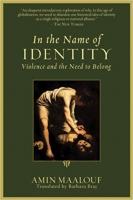 Wednesdays, 6/20 and 6/27; 2:00-4:00
Wednesdays, 6/20 and 6/27; 2:00-4:00
It can be difficult to reach students when their assumptions and even their core beliefs are challenged by our material. Maalouf’s book will provide a starting place for discussion of how group identity plays a role in learning, and how we may be able to defuse the threats to identity that can inhibit learning, in order to create a better climate for the intellectual risk and growth we want to cultivate.
2018 Spring Reading/Working Groups
Mindset Reading/Working Group
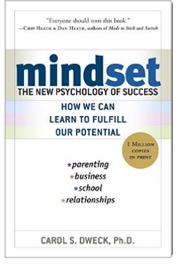 Thursdays 2:00-4:00; 1/18, 1/25, 2/1
Thursdays 2:00-4:00; 1/18, 1/25, 2/1
This group will discuss Stanford University psychologist Carol Dweck’s book Mindset: The New Psychology of Success to uncover ways we can demonstrate to students that their intellectual skills are not fixed; they can be cultivated through hard work, practice, feedback, and many other activities. This growth mindset has been associated with remarkable gains in student motivation and performance, so we’ll generate strategies for promoting a growth mindset at FSU.
Stereotype Threat Reading/Working Group
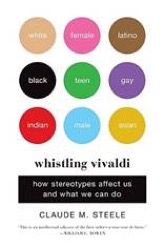 Tuesdays 2:00-4:00; 1/30, 2/6, 2/13
Tuesdays 2:00-4:00; 1/30, 2/6, 2/13
This faculty reading/working group will discuss Claude Steele’s text Whistling Vivaldi: How Stereotypes Affect Us and What We Can Do. Steele uses extensive research findings from across disciplines to illustrate how identity threats and stereotypes influence behavior and performance. This group will consider how stereotypes affect our own students—and generate ideas for how we might work against those stereotypes with negative consequences and perhaps capitalize on the positive ones.
What The Best College Teachers Do
 Thursdays 10:00-12:00; 2/15, 2/22, 3/1
Thursdays 10:00-12:00; 2/15, 2/22, 3/1
Ken Bain wanted to know how some faculty manage to “make a sustained, substantial, and positive influence on how their students think, act, and feel.” How do some faculty consistently provoke deep learning, while the rest of us merely have good intentions? Bain conducted a fifteen-year study of a hundred extraordinarily effective teachers, to see how they help their students learn. The book traces how these exceptional teachers approach their subjects, their students, and the process of learning.
Cheating Lessons Reading Group
 Wednesdays 10:00-12:00; 2/21, 2/28, 3/7
Wednesdays 10:00-12:00; 2/21, 2/28, 3/7
Cheating Lessons: Learning from Academic Dishonesty is far more comprehensive, useful, and timely than the title suggests. When Lang began conducting research on academic honesty, seeking to “understand the mindset and the behavior of the cheating student,” he discovered that specific, often hidden features of course design and daily classroom practices can lead to cheating. He also discovered that the strategies most potent in minimizing dishonesty (associated with intrinsic motivation and self-efficacy, for instance) also engender deep learning. While discussing these powerful ideas and the implications for our own classrooms, we’ll also consider how we can cultivate academic integrity at FSU.
Learner-Centered Teaching Reading Group
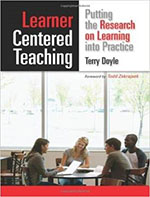 Tuesdays, 3:00-5:00; 3/20, 3/27, 4/3
Tuesdays, 3:00-5:00; 3/20, 3/27, 4/3
Recent decades have brought a wealth of research on learning and cognition; these developments are gradually making their way into work on best practices for the college classroom. Doyle’s Learner-Centered Teaching: Putting the Research on Learning into Practice is a practical guide to strategies for making effective use of the research. When we adjust our classroom focus from teaching to learning, we make our own work more gratifying, and we can enhance our students’ learning experience as well as their mastery of material. The group will generate specific strategies and activities for enriching our own classrooms.
2017 Fall Reading/Working Groups
What The Best College Teachers Do
 Tuesdays: 9/19, 9/26, 10/3; 2:00-4:00
Tuesdays: 9/19, 9/26, 10/3; 2:00-4:00
Ken Bain wanted to know how some faculty manage to “make a sustained, substantial, and positive influence on how [their] students think, act, and feel.” How do some faculty consistently provoke deep learning, while the rest of us merely have good intentions? Bain conducted a fifteen-year study of a hundred extraordinarily effective teachers, to see how they help their students learn. His engaging, humorous book traces the results of his study, showing what we can learn from the way these exceptional teachers approach their subjects, their students, and the process of learning.
How Learning Works
 Wednesdays: 9/27, 10/4, 10/11; 12:00-2:00
Wednesdays: 9/27, 10/4, 10/11; 12:00-2:00
This book distills the research on cognition, translating decades of scientific literature into practical advice for university faculty, and introducing seven general principles of how people learn. The authors draw on research from cognitive, developmental, and social psychology, as well as educational research, anthropology, etc. The discussion spans issues from memory to motivation, integrating theory with real-classroom examples in practice. Participants will develop strategies for strengthening their own teaching through the application of these principles of cognitive psychology.
Learner Centered Teaching
 Tuesdays: 10/10, 10/17, 10/24; 12:00-2:00
Tuesdays: 10/10, 10/17, 10/24; 12:00-2:00
Recent decades have brought a wealth of research on learning and cognition; these developments are gradually making their way into work on best practices for the college classroom. Doyle’s Learner Centered Teaching: Putting the Research on Learning into Practice is a practical, comprehensive guide to strategies for making effective use of the research. When we adjust our classroom focus from teaching to learning, we make our own work more gratifying, and we can enhance our students’ learning experience as well as their mastery of material. As a group, we will discuss Doyle’s text and specific strategies and activities for enriching our own classrooms.
Make it Stick
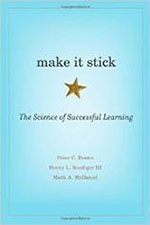 Mondays: 10/9, 10/16, 10/23; 2:00-4:00
Mondays: 10/9, 10/16, 10/23; 2:00-4:00
In Make It Stick: The Science of Successful Learning, Brown, Roediger, and McDaniel assemble the most important current research on learning, to deliver “highly effective, evidence-based strategies to replace less effective but widely accepted practices that are rooted in theory, lore, and intuition.” It turns out that much of our intuition about learning is misleading; this book group will focus on using the research to develop more effective learning strategies for our classrooms.
Now You See It
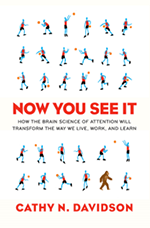 Wednesdays: 11/1, 11/8, 11/15; 12:00-2:00
Wednesdays: 11/1, 11/8, 11/15; 12:00-2:00
In Now You See It: How Technology and Brain Science Will Transform Schools and Business for the 21st Century, Davidson uses research in neuroscience, psychology, and management, plus interviews with business and educational leaders, to argue that the human brain is perfectly well-suited to the digital world if we are willing to rethink the classroom, the workplace, and how we measure success. In this Inside Higher Ed interview, Davidson suggests “we have a mismatch between our institutions of learning and the exciting informal ways kids learn online and, for that matter, all the new ways that, as adults, we all work, communicate, and learn together online.” This group will discuss how we might realign them to maximize student learning.

